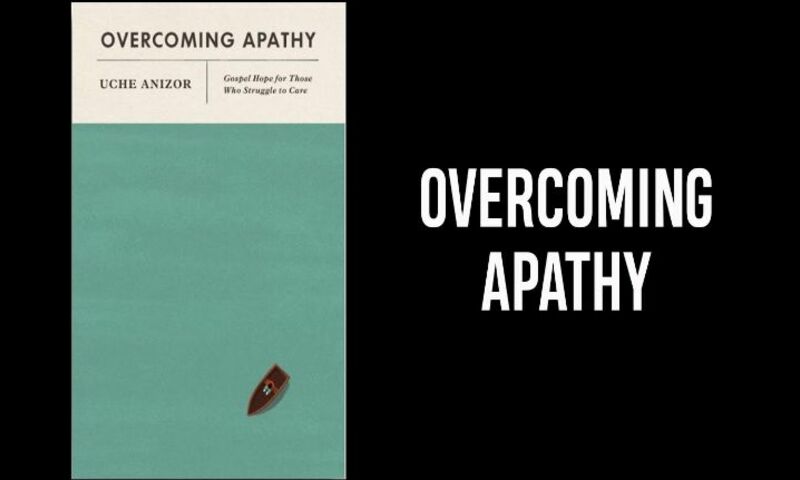If you’ve ever experienced seasons of feeling fairly indifferent about spiritual things, you may have wondered how you got to that place. While there are probably a number of psychological, emotional and cultural factors contributing to our spiritual apathy, I wonder if sometimes its root is not so complicated. Our “blahness” toward spiritual things may simply be the result of a lack of discipline and diligence in the very basics of our faith. We stoke our fires for certain things while we let the embers die out in our spiritual life.
For example, one study shows that roughly 60% of kids between 8-17 years old spend at least 2 hours a day on video games. Add to this the fact that children spend seven hours per day interacting with media of all sorts. The average American watches 2.8 hours of television per day (19.6 hours per week), while those 15-44 years old read less than ten minutes per day [1]. Now, there is no problem with leisure, TV, or gaming per se, yet we need to be aware that the mathematics of spiritual impotence is quite simple:
Buckets of time looking at screens + almost no time in spiritual disciplines = meh.
Wilhelmus à Brakel, the Dutch theologian, strongly cautions against sluggishness, viewing it as “the fountain of all manner of sin, vain thoughts, fornication (2 Sam. 11:2), backbiting (Rom. 1:30), unrighteousness and despair.” He exhorts, “Therefore, be fearful of laziness. He who is lazy in temporal matters will be lazy in spiritual matters, and he who is diligent in spiritual matters will be diligent in temporal matters” [2]. An overarching lack of discipline will inevitably infect our walk with God. Our thinking (“vain thoughts”) and feeling (“despair”) about the things of heaven become misshapen. The apostle Paul writes in Rom. 8:5–7:
For those who live according to the flesh set their minds on the things of the flesh, but those who live according to the Spirit set their minds on the things of the Spirit. For to set the mind on the flesh is death, but to set the mind on the Spirit is life and peace. For the mind that is set on the flesh is hostile to God, for it does not submit to God's law; indeed, it cannot.
The vibrancy of our spiritual life has everything to do with what our mind is set upon. If our mind is regularly set on the things of the Spirit, we will experience abundant life and peace. However, if our mind is set on the things of the flesh, we will experience inner hostility toward God and death in our souls. A lazy, undisciplined, misdirected mind-set leads to death, even the slow death characterized by the disordered non-affections of apathy.
It sometimes seems like we have lost all faith in the power of a disciplined life. We don’t believe change is possible, that it comes only from “out of nowhere” or in some cataclysmic event, or that it requires expert skills. It can feel too simplistic or formulaic to assume that our growth in love for God and neighbor has a direct correlation to the discipline and regularity of spiritual practices. “Read your Bible, pray every day, and you will grow, grow, grow; don’t read your Bible and forget to pray, and you will shrink, shrink, shrink” — this is a simpleton’s song, so we think.
What about the psychological dimensions of growth? What about a theology of divine grace? “Christian growth is complicated!” we might protest. Yes, Christian maturity does involve attending to a number of things. Yet, we don’t do algebra by scrapping basic arithmetic. One builds on the other. The influential thinker on spirituality, Dallas Willard, is correct when he claims:
We can become like Christ by doing one thing — by following him in the overall style of life he chose for himself. If we have faith in Christ, we must believe that he knew how to live. We can, through faith and grace, become like Christ by practicing the types of activities he engaged in, by arranging our whole lives around the activities he himself practiced in order to remain constantly at home in the fellowship of his Father [3].
What did Jesus do? He prayed, practiced solitude, studied and meditated on God’s Word, and regularly served others. Thus, the mathematics of growth is also quite simple:
Set your mind on things of the Spirit + practice the things Jesus did = life.
If we want to solve the mystery of our spiritual blahness and expose a potential cause of our apathy, we should ask ourselves: As I look back on my day or week, month or year, what have I set my mind on? Have I ruthlessly sought to set my mind on the things of the Spirit (i.e. things that nurture my spiritual life)?
There is likely more to our apathy backstory than a lack of discipline, but this is always a good place to start as we try to understand ourselves and our sometimes-perplexing indifference toward the things of God.
This post is adapted from , a new book by Talbot School of Theology professor Uche Anizor. His book is available for purchase .
Notes
[1] Kevin Anderton, “Research Report Shows How Much Time We Spend Gaming,” Forbes, March 21, 2019, ; “American Time Use Survey Summary,” U. S. Bureau of Labor Statistics, June 25, 2020, ; “Video Games,” Center on Media and Child Health, accessed July 26, 2020, .
[2] Wilhelmus à Brakel, The Christian’s Reasonable Service, vol. 4, trans. Bartel Elshout; ed. by Joel R. Beeke (Grand Rapids: Reformation Heritage, 1995), 109.
[3] Dallas Willard, The Spirit of the Disciplines: Understanding How God Changes Lives (New York: HarperCollins, 1991), ix.
 51ÂÜŔň
51ÂÜŔň

.jpg)
.jpg)
.jpg)
